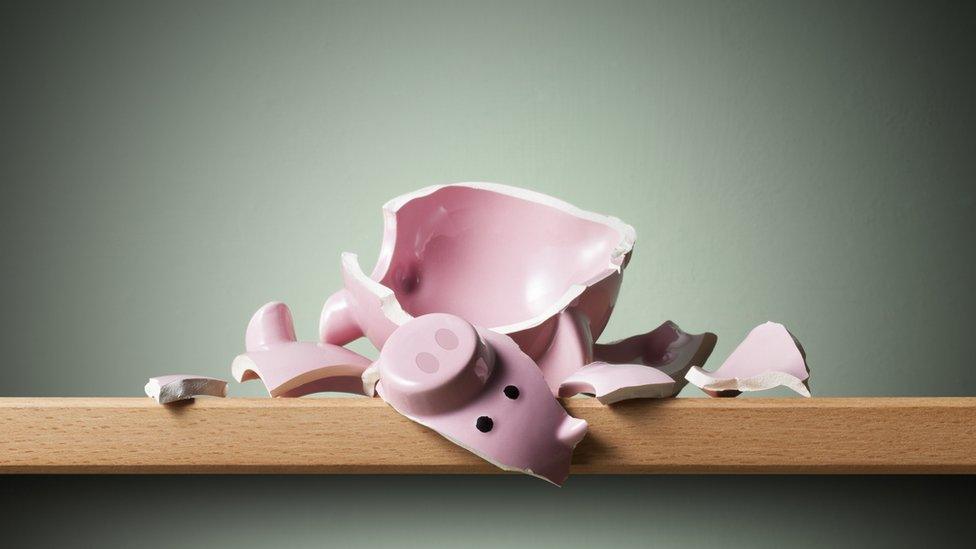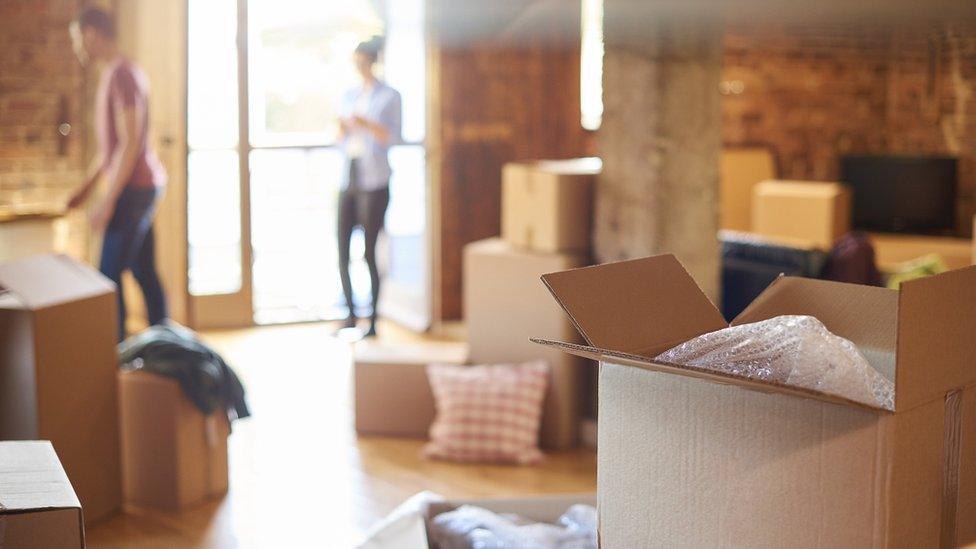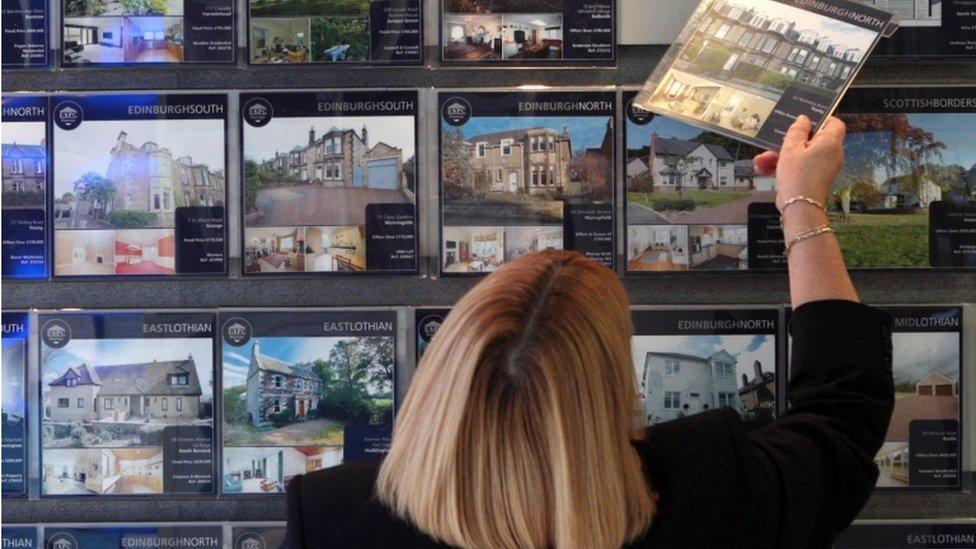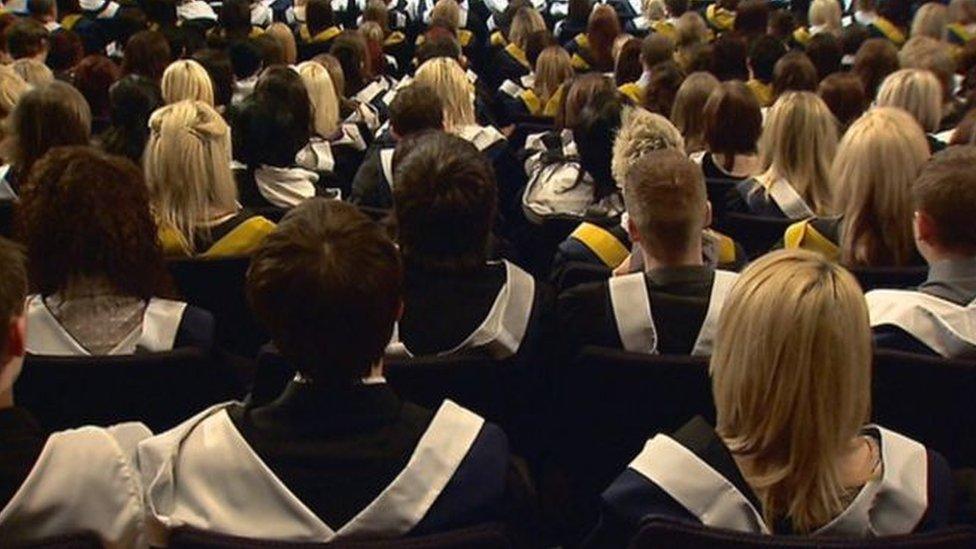Why Generation Y are renting not buying
- Published

The cost of housing makes it impossible for many members of Generation Y to save money for a deposit
This week on BBC Scotland we've been looking at what life is like for Generation Y - people born between 1980 and the year 2000. Today we're focusing on money - and the cost of living for millennials.
Money. We'd all like more of it.
The cost of living is a challenge for people of all ages. But are there particular challenges for Generation Y?
One area where that certainly appears to be the case is housing.
Alasdair McGinnigle is 30 and has moved back in with his mum and dad in Glasgow so he can save cash for a deposit.
"I struggled to rent and save up at the same time as the rent was too high and the amount of money I wanted to save was too high as well," he says.
He says that's impacted on his independence.
And our analysis shows he's unlikely to be the only one finding it tough.
It suggests many will have to spend years saving at the average rate to get a deposit to help.
The average salary for graduates in Scotland three-and-a-half years after they leave university is £27,500.
It sounds like a decent salary. But how far does it go?

Buying their own home is "just a dream" for many members of Generation Y
Iona Bain is an expert in the personal finances of Generation Y.
"When you're looking at the average pay packet of £27,000 or so it does sound like a lot," she says.
"But then you think about that initial amount that's needed just to keep a roof over your head.. That is a lot of money to see disappear just like that.
"And then you've got to think about the costs of commuting. Rail fares keep going up every year.
"You have to consider how much it costs just to keep body and soul together as a young worker and you'll see that the average salary isn't really that much."
According to Iona, that means relying on the "bank of mum and dad" to get a deposit is becoming the new norm.
"I don't think it's realistic for young people to expect to buy their first home without getting help from their family," she says.
"If you need a deposit that's 10% of the average house price, that is a huge sum of money that you're having to find from nowhere."
She adds: "It's the new norm - to get help from your mum and dad or from other members of your family to get on the housing ladder. It's just something that we all have to get used to."
It's a problem Shelter Scotland think is a significant one.
Deposit struggle
The organisation's director Graeme Brown says: "For young people often buying your own home is actually just a dream."
Houses prices are too high, he says, and most are already paying a lot in rent.
And simply renting is difficult work too.
Hannah Clark and Jonathan Rimmer are both graduates. She's going back to do a postgrad qualification, he's a journalist. They've both struggled to find a deposit to rent a flat.
"We've both had to borrow from our parents," says Hannah.
"All of the income we do have just goes to living. It's not like you can put anything aside... the last few years I've been perpetually in my overdraft."
Jonathan adds that buying is "definitely not" a realistic option in the short to medium term.
"My mum and dad got a mortgage on their first house when they were 22. I'm 24, she's 22, we both have degrees we're working multiple jobs just to get by.
On owning a house, he adds: "It's so far off, you don't even think about it."
- Published31 August 2017

- Published30 August 2017

- Published29 August 2017

- Published28 August 2017
